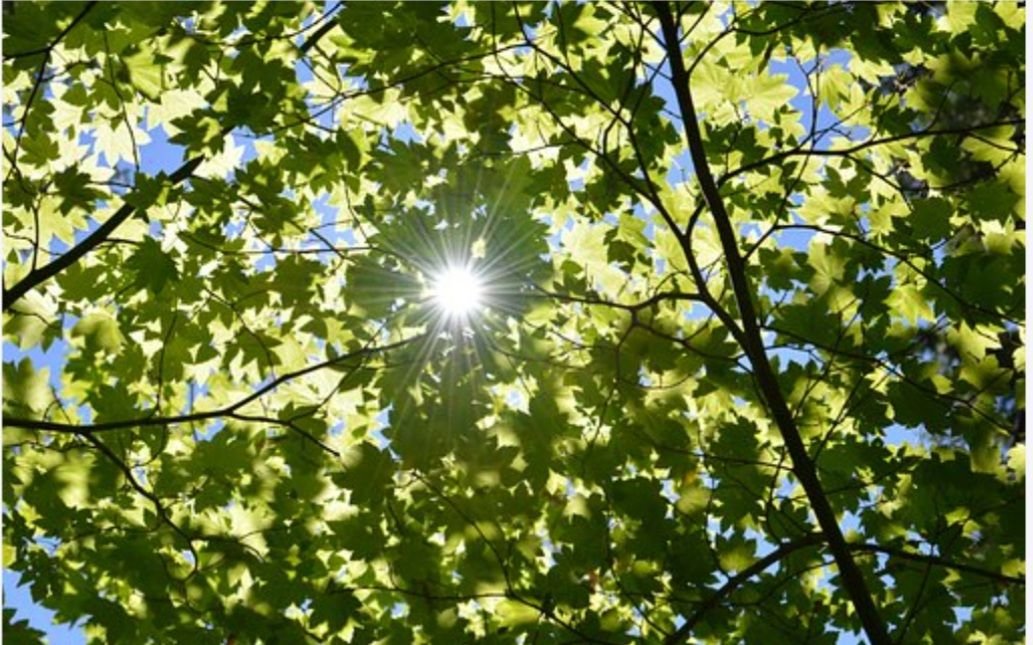Whiteness and Blackness!
In The Name of Allah, The Most Merciful, The Bestower of Mercy.
Allah, The Most High, said:
وَمِنۡ ءَايَـٰتِهِۦ خَلۡقُ ٱلسَّمَـٰوَٲتِ وَٱلۡأَرۡضِ وَٱخۡتِلَـٰفُ أَلۡسِنَتِڪُمۡ وَأَلۡوَٲنِكُمۡۚ إِنَّ فِى ذَٲلِكَ لَأَيَـٰتٍ۬ لِّلۡعَـٰلِمِينَ
And among His Signs is the creation of the heavens and the earth, and the difference of your languages and colours. Verily, in that are indeed signs for people of sound knowledge.[Surah Ar-Rum. Ayah 22]
Allah, The Mighty and Majestic, said:
يَٰٓأَيُّهَا ٱلنَّاسُ إِنَّا خَلَقْنَٰكُم مِّن ذَكَرٍ وَأُنثَىٰ وَجَعَلْنَٰكُمْ شُعُوبًا وَقَبَآئِلَ لِتَعَارَفُوٓا۟ إِنَّ أَكْرَمَكُمْ عِندَ ٱللَّهِ أَتْقَىٰكُمْ إِنَّ ٱللَّهَ عَلِيمٌ خَبِيرٌ
O mankind, We have created you from a male (Ādam) and female (Eve) (making you all of equal lineage) and We made you into nations and tribes that you may know one another (and fulfil each other’s rights). Verily, the most honourable of you with Allāh is the most pious of you (and not the noblest in lineage or most affluent) (so do not be boastful and belittle others). Indeed, Allāh is all-Knowing, all-Aware.
https://www.thenoblequran.com/q/#/search/49_13
Without delving too deeply, there is an ongoing conversation among humanity, alongside many other discussions, about the concepts of whiteness and blackness. As someone from a family that is quite diverse in terms of African inter-tribal blood relations with the Fulani, Mandinka, Wollof, Aku, Sereer, and Hausa, it is remarkable how Islam has brought us together to the point where our tribal origins are the last thing on our minds. Furthermore, some of our family members, including cousins, nieces and nephews, uncles, and children, are married to individuals of White English descent, Irish descent, Pakistani descent, German, Swedish, Caribbean descent, Kurdish descent, Hispanic descent and so on. And among our close brothers in Islam, there are those married to Indians, Turks, Banghalis, Chinese, Yeminis, Iraqis, Morroccans, Algerians etc. Therefore, we are indeed very diverse, alhamdulillah.
In light of the discussions among people regarding whiteness and blackness, we chose to examine the issue briefly. Whiteness, as some describe it, is a field of critical study that has emerged from Critical Race Theory. It investigates whiteness not as a biological fact but as a socially constructed racial category and a system of privilege. This field explores how the notion of whiteness has been historically influenced by social, economic, and political forces, creating unseen advantages for white individuals and establishing a racial hierarchy that positions whiteness as the societal norm. The theory scrutinizes how this racialization operates, sustains power dynamics, and affects lived experiences, challenging the often-overlooked privileges and standards associated with being white.
In this context, we assert that any race that has held dominance over others, be it black, white, or Asian, has established social systems that grant privileges to some while leaving others disadvantaged. Moreover, even within the tribes of particular nations, there exists oppression and discrimination. Consequently, every occurrence of structural inequality is supported by either prejudice, tribalism, clanism, or racism, none of which align with the teachings of the noble prophets. Thus, we declare that Islam abolishes all of this. Refer to this article – starting on page 10 – which discusses the Conditions Leading Up to the Arrival of the Final Messenger, the Elimination of Social Class Conflict, and the Abolishment of Structural Inequality.
Click to access A-precise-scrutiny-of-Human-Rights_1.pdf
Regarding blackness, some authors do not refer to it as something linked to individuals whose ancestors originate from Africa; instead, they approach it as a cultural phenomenon of being Black. This is because they argue that one can be African American without being Black, just as one can be both African American and Black. They contend from a cultural standpoint that Blackness encompasses a multitude of meanings across the past, present, and future, making it impossible to encapsulate in mere words. It represents a culture, a style, an unwritten constitution, a perspective, a way of life, an expectation, an emotion, a source of motivation, a catalyst for change, radicalism, potential, history, current reality, and future possibilities; it embodies everything. For instance, some might say: I was born to Black parents in a Black neighborhood in the Black city of Atlanta. From an early age, I was immersed in the civil rights movement and its key figures. Some individuals argue that that the notion of “blackness” (referring to black skin) has been utilised to describe both external and internal traits of a “black group” (or “race”). This study outlines the evolution of this concept from ancient times, through the Middle Ages, and into modernity, where it laid the groundwork for developing race theories.
After reviewing various points in this subject on Whiteness and Blackness, I encountered several disturbing racist notions, which, when examined more closely, appear to originate from mere misguidance and a straying from Allah’s path. The two verses mentioned at the start of this article are adequate for believers to grasp that virtue is not defined by race; rather, it is based on piety and righteous deeds, as found in Surah al-Hujurat ayah 13. Thus, there is no need to refer to any of those comments about Blackness and Whiteness, as they are merely expressions of racist ideology. It is also crucial to recognize that, in response to racism, some black individuals have resorted to labeling white people as devils. This clearly stems from misguidance. The solution is simple: we must return to the Creator’s path, who created us from one male and one female, forming us into nations and tribes, and stated that the best among us are those who exhibit piety, end of discussion, with no need for theories or counter-theories regarding Blackness and Whiteness. Nonetheless, this does not imply that we should become complacent when any individual or group from a particular race commits acts of injustice against another race purely based on a flawed sense of racial superiority.
Furthermore, we do not endorse any cultural practices, whether labeled as Whiteness or Blackness, that are in conflict with Allah’s Shariah. In this context, we reject everything that opposes Allah’s Shariah, including any pan-Africanists whose views extend beyond what is prescribed by the Creator in one’s quest for justice. Read below:
A brief dialogue with the African Muslim regarding Pan-Africanism
We express our gratitude to Allah for leading us to Islam and for the blessing of having relatives from diverse clans, tribes, nations, and skin tones. This includes our cousins, wives, in-laws, children, and grandchildren, along with our brothers in Islam from various backgrounds, some of whom have the fairest complexions while others possess a range of skin tones. The one thing that brings us together is Islam.
And Allah knows best





